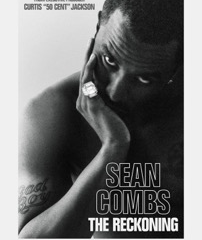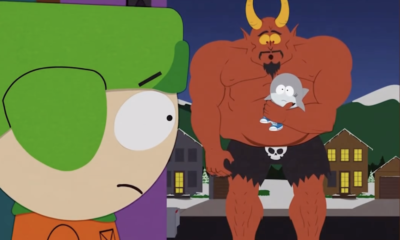Entertainment
Why Did Dakarai Trash His NBA Letters?
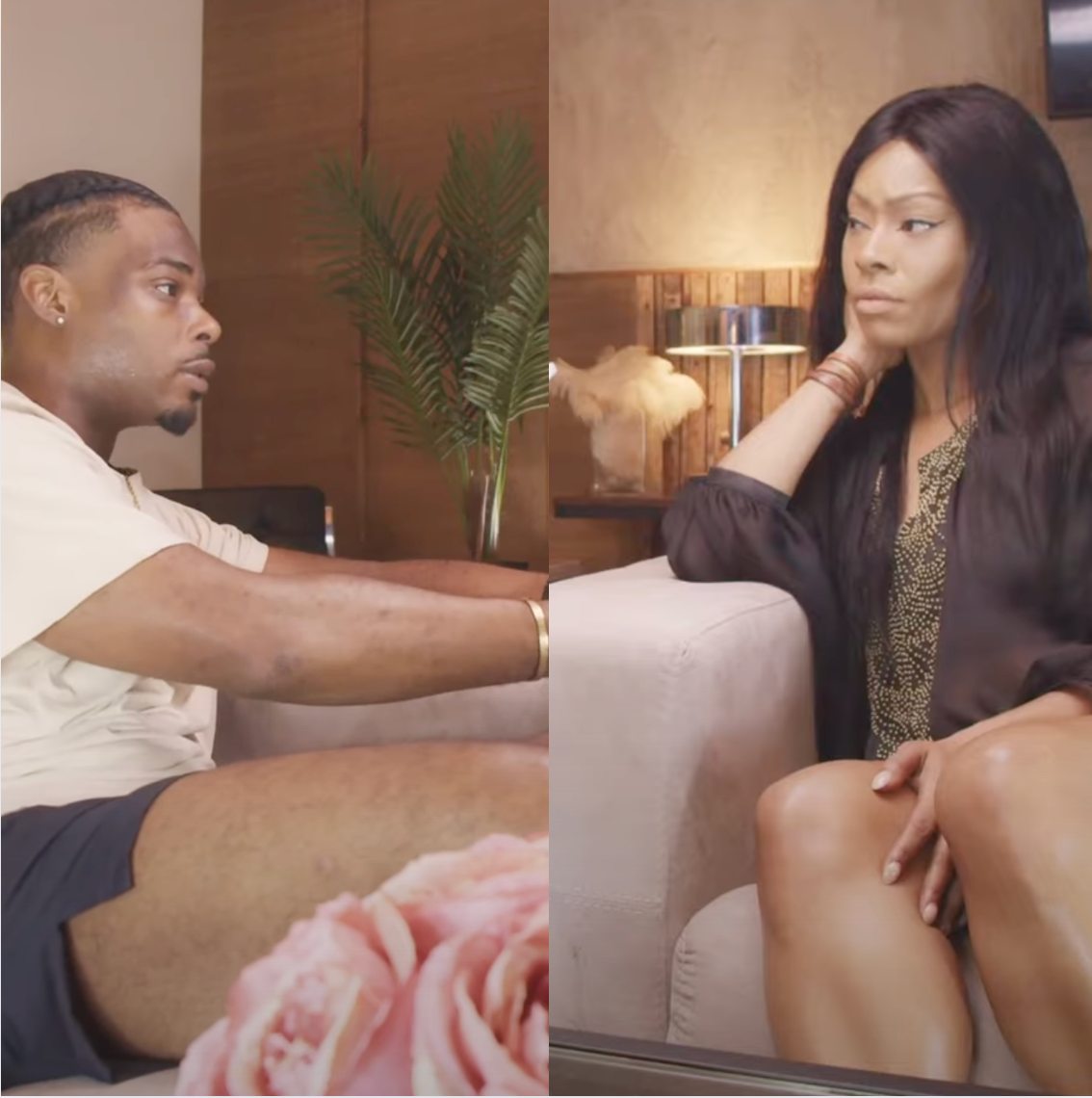
Dakarai Akil’s story isn’t the kind fans expect—it’s the kind that leaves them talking. When he sat down with Roselyn Omaka, he didn’t just recount his journey from hardwood glory to movie magic; he dropped a bombshell on anyone invested in formulas or conventional paths. The all-time leader from Dawson High, the ESPN-featured college athlete, walked away from pro offers without a second glance.
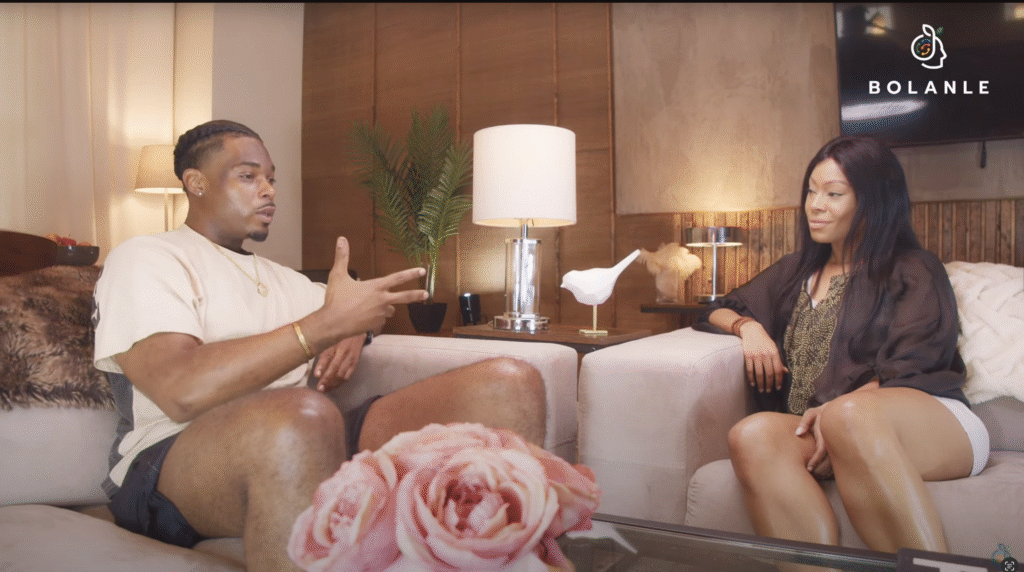
The Unthinkable Choice
What compels someone to take a stack of NBA tryout letters, unopened, and dump them straight into the trash? For Dakarai, that moment wasn’t about giving up—it was about finally listening to the thrill in his gut. He recalled writing his first script in college, expecting to jot down ten pages, and coming back with forty because the inspiration was relentless. That passion, he says, is what lit the fuse on a new destiny, one that felt more alive than a future set by others.
Fresh Starts and Hustle
Making that leap meant plunging into the unknown. As soon as the basketball spotlight faded, Dakarai hustled through the grind: selling DirectTV at Sam’s Club, late shifts at UPS, painting for PPG, and landing at Enterprise—all while picking up skills, humility, and heart. “All the dream chasers had to fund the dream,” he laughs. For months, rejection and doubt circled, but Dakarai refused to let others’ doubts dim his vision. He paid for his first camera with grocery money, set up alone, and pressed ‘Play’ on a brand new life.
Originality Over Carbon Copies
Dakarai’s work is fueled by authenticity and obsessive attention to detail. He’s clear:
“Everyone’s a carbon copy now.”
Instead, he crafts stories that reward viewers who pay attention—layered projects with references and details borrowed from his own journey and the legends he admires. Each film, each role, becomes a challenge to the gen-pop formula flooding content platforms.
Only the Beginning
The conversation with Roselyn peels back many layers—a kid who faced rejection, a young man who lost friends by trading jerseys for scripts, and an artist coming to terms with ghost towns at his first premieres, packed only with strangers. Still, Dakarai calls it “just scratching the surface.” His humility is matched only by his ambition to inspire every underdog who quietly watches, waiting for permission and staying true to his own vision.
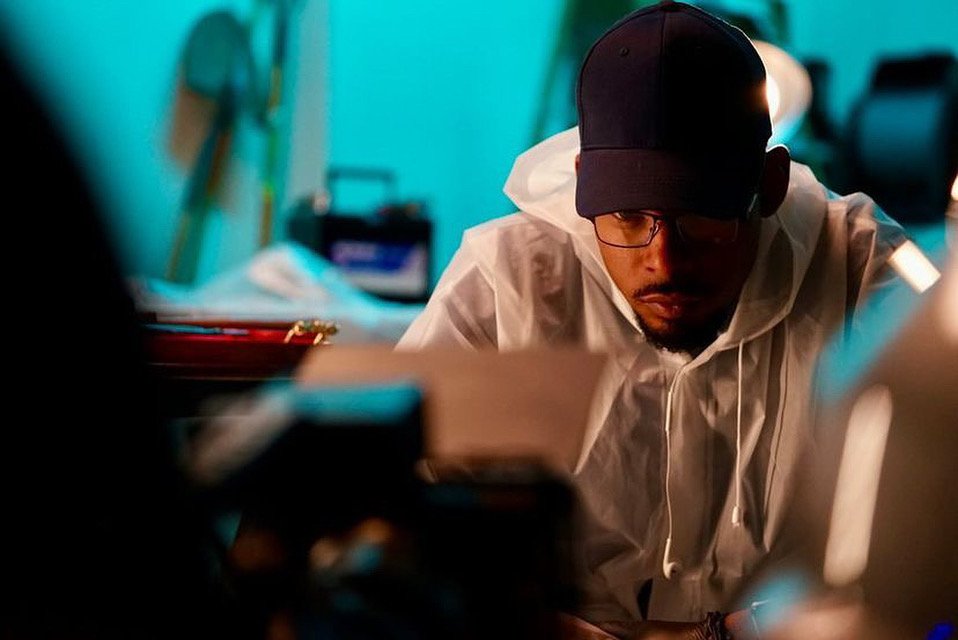
Lessons from the Legends
Near the end, Dakarai turns reflective, speaking on the greats—Denzel, Samuel L., Morgan Freeman—who “popped at different times.” He’s learned the power of running one’s own race, never timing out on a dream, and celebrating originality over popularity. “Most people just want to be seen. They don’t want to be great. See, I’m the opposite. I focus on greatness, because everybody wants to see greatness,” he shares. It’s a mindset that stands at the heart of his story, signaling that for Dakarai, this isn’t the finish line—it’s the very beginning.
If Dakarai’s path proves anything, it’s that greatness starts when comfort ends and vision begins. His trash can moment wasn’t a mistake—it was an invitation to chase something real. And for all those watching, he’s making one thing clear: open your own letter, no matter when your time comes. Dakarai’s story is nothing short of cinematic. When he sat down with Roselyn Omaka, he peeled back the layers of a journey that broke every rule—and sparked every creative fire. As Dawson High’s legendary scorer and a college basketball star, most assumed Dakarai’s next stop was the pros. But, shockingly, the stack of NBA tryout letters delivered by his coach never saw the light of day—they hit the trash, unopened. Why? Because Dakarai wanted something no one else could see.
The Moment Everything Changed
College was a crossroads. When a film student asked Dakarai to write a script, he went all in—expecting to deliver ten pages and returning with forty, so inspired he couldn’t stop. He describes that moment as his artistic awakening, the moment filmmaking lit up his whole sense of purpose while basketball—despite all its glory—started losing its spark. That passion meant giving up certainty for a mysterious calling, and even the teammates who’d cheered him on couldn’t understand his leap of faith.
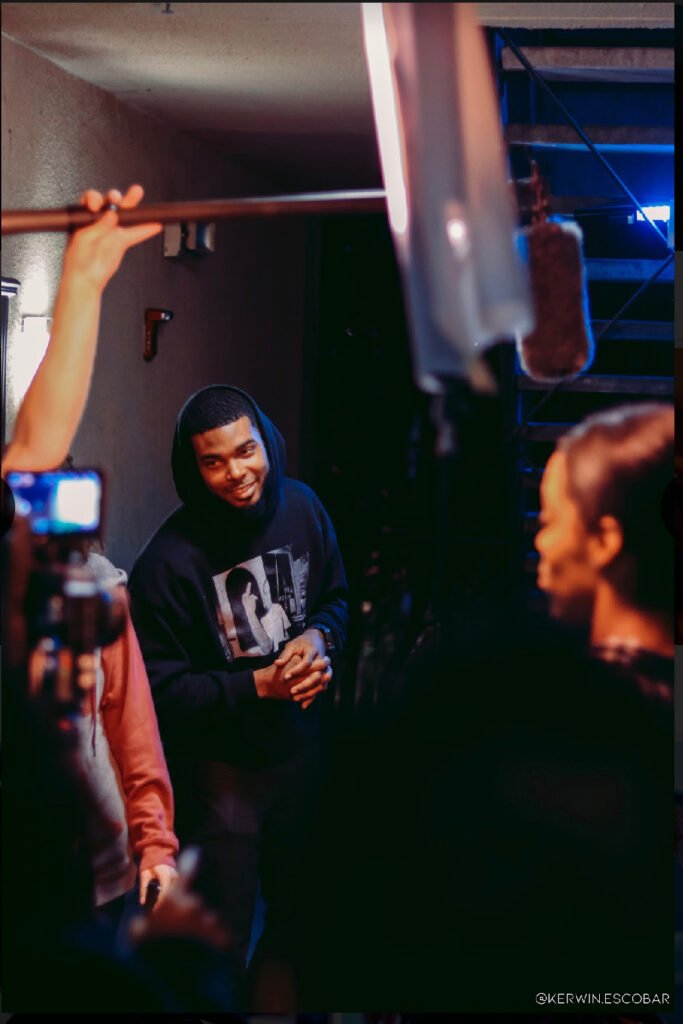
Hustling Through the Unknown
Leaving basketball was just page one. Dakarai scraped together jobs: selling DirectTV in Sam’s Club, working at UPS, painting for PPG, and finally learning business at Enterprise—all while saving up for his first real filmmaking tools. Every empty room, every rejection letter, and every side hustle became fuel for the fire, teaching him not just technical skills but how to rebuild from zero, with nothing but faith and ambition.
Breaking Every Mold
Dakarai’s journey is textured—original films stacked with subtle references, storylines that defy stereotypes, and roles far beyond the typical hood drama. He’s as vulnerable as he is determined, facing doubt from the film club that didn’t accept him, and critics who wanted him to stay in his “box.” Instead, he paid for his first camera with grocery money and shot his first film alone, proving that originality is a superpower in a world obsessed with carbon copies.
Wisdom from the Greats
The highlight of Dakarai’s sit-down with Roselyn is his take on studying legends. “I look at journeys for inspiration,” he says, pointing out how Denzel Washington, Samuel L. Jackson, and Morgan Freeman each broke out on their own timeline. There is no expiration date for greatness—and Dakarai’s story echoes that.
“Most people want to be seen. I focus on greatness, because everybody wants to see greatness,” he shares, making it clear that there’s always a next chapter when you’re willing to be yourself.
If Dakarai’s path proves anything, it’s that the beginning is sometimes disguised as the end. His trash can moment means the real story is yet to come—and for anyone watching, it’s the kind of inspiration that invites us all to leap without looking back. Every legend started as an underdog, and Dakarai’s just warming up.
Entertainment
What We Can Learn Inside 50 Cent’s Explosive Diddy Documentary: 5 Reasons You Should Watch
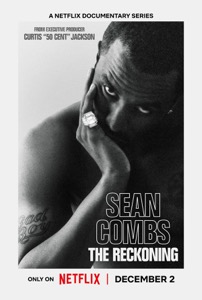
50 Cent’s new Netflix docuseries about Sean “Diddy” Combs is more than a headline-grabbing exposé; it is a meticulous breakdown of how power, celebrity, and silence can collide in the entertainment industry.
Across its episodes, the series traces Diddy’s rise, the allegations that followed him for years, and the shocking footage and testimonies now forcing a wider cultural reckoning.
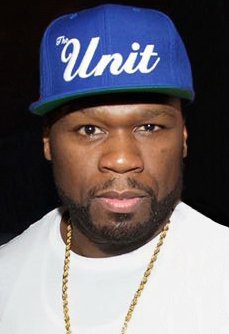
1. It Chronicles Diddy’s Rise and Fall – And How Power Warps Reality
The docuseries follows Combs from hitmaker and business icon to a figure facing serious criminal conviction and public disgrace, mapping out decades of influence, branding, and behind-the-scenes behavior. Watching that arc shows how money, fame, and industry relationships can shield someone from scrutiny and delay accountability, even as disturbing accusations accumulate.
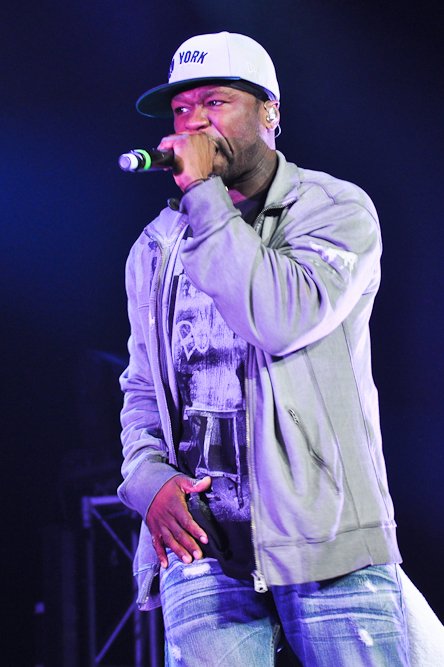
2. Never-Before-Seen Footage Shows How Narratives Are Managed
Exclusive footage of Diddy in private settings and in the tense days around his legal troubles reveals how carefully celebrity narratives are shaped, even in crisis.
Viewers can learn to question polished statements and recognize that what looks spontaneous in public is often the result of strategy, damage control, and legal calculation.
3. Survivors’ Stories Highlight Patterns of Abuse and Silence
Interviews with alleged victims, former staff, and industry insiders describe patterns of control, fear, and emotional or physical harm that were long whispered about but rarely aired in this detail. Their stories underline how difficult it is to speak out against a powerful figure, teaching viewers why many survivors delay disclosure and why consistent patterns across multiple accounts matter.
4. 50 Cent’s Approach Shows Storytelling as a Tool for Accountability
As executive producer, 50 Cent uses his reputation and platform to push a project that leans into uncomfortable truths rather than protecting industry relationships. The series demonstrates how documentary storytelling can challenge established power structures, elevate marginalized voices, and pressure institutions to respond when traditional systems have failed.
5. The Cultural Backlash Reveals How Society Handles Celebrity Accountability
Reactions to the doc—ranging from people calling it necessary and brave to others dismissing it as a vendetta or smear campaign—expose how emotionally invested audiences can be in defending or condemning a famous figure. Watching that debate unfold helps viewers see how fandom, nostalgia, and bias influence who is believed, and why conversations about “cancel culture” often mask deeper questions about justice and who is considered too powerful to fall.
Entertainment
South Park’s Christmas Episode Delivers the Antichrist
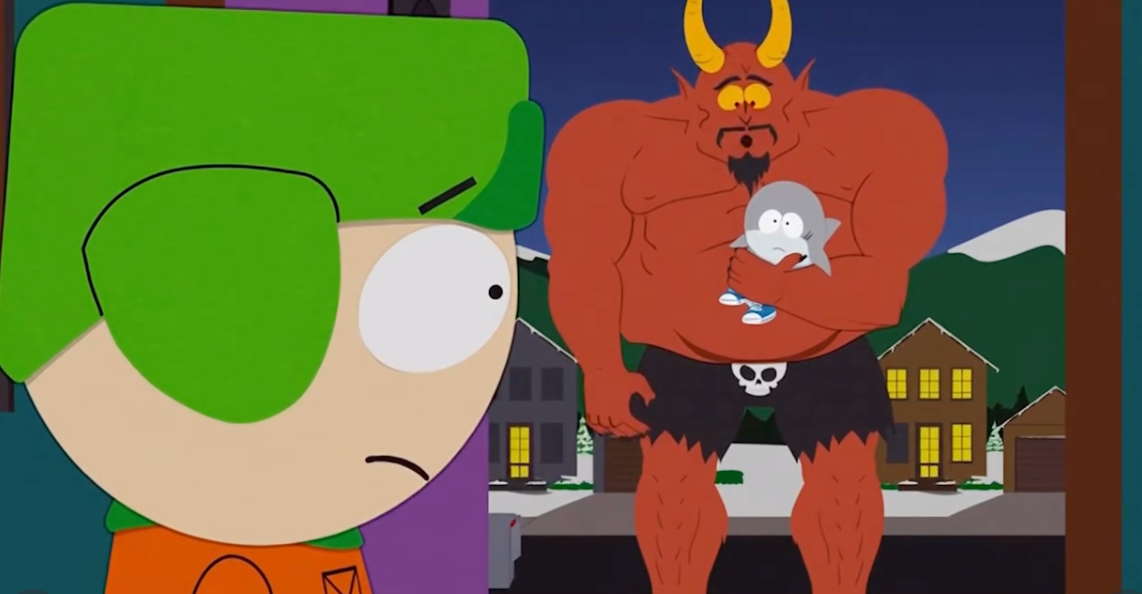
A new Christmas-themed episode of South Park is scheduled to air with a central plot in which Satan is depicted as preparing for the birth of an Antichrist figure. The premise extends a season-long narrative arc that has involved Satan, Donald Trump, and apocalyptic rhetoric, positioning this holiday episode as a culmination of those storylines rather than a stand‑alone concept.
Episode premise and season context
According to published synopses and entertainment coverage, the episode frames the Antichrist as part of a fictional storyline that blends religious symbolism with commentary on politics, media, and cultural fear. This follows earlier Season 28 episodes that introduced ideas about Trump fathering an Antichrist child and tech billionaire Peter Thiel obsessing over prophecy and end‑times narratives. The Christmas setting is presented as a contrast to the darker themes, reflecting the series’ pattern of pairing holiday imagery with controversial subject matter.
Public and political reactions
Coverage notes that some figures connected to Donald Trump’s political orbit have criticized the season’s portrayal of Trump and his allies, describing the show as relying on shock tactics rather than substantive critique. Commentators highlight that these objections are directed more at the depiction of real political figures and the show’s tone than at the specific theology of the Antichrist storyline.
At the time of reporting, there have not been widely reported, detailed statements from major religious leaders focused solely on this Christmas episode, though religion-focused criticism of South Park in general has a long history.
Media and cultural commentary
Entertainment outlets such as The Hollywood Reporter, Entertainment Weekly, Forbes, Slate, and USA Today describe the Antichrist arc as part of South Park’s ongoing use of Trump-era and tech-world politics as material for satire.
Viewer guidance and content advisory
South Park is rated TV‑MA and is intended for adult audiences due to strong language, explicit themes, and frequent use of religious and political satire. Viewers who are sensitive to depictions of Satan, the Antichrist, or parodies involving real political figures may find this episode particularly objectionable, while others may view it as consistent with the show’s long‑running approach to controversial topics. As with previous episodes, individual responses are likely to vary widely, and the episode is best understood as part of an ongoing satirical series rather than a factual or theological statement.
Entertainment
Sydney Sweeney Finally Confronts the Plastic Surgery Rumors

Sydney Sweeney has decided she is finished watching strangers on the internet treat her face like a forensic project. After years of side‑by‑side screenshots, “then vs now” TikToks, and long comment threads wondering what work she has supposedly had done, the actor is now addressing the plastic surgery rumors directly—and using them to say something larger about how women are looked at in Hollywood and online.

Growing Up on Camera vs. “Before and After” Culture
Sweeney points out that people are often mistaking normal changes for procedures: she grew up on camera, her roles now come with big‑budget glam teams, and her body has shifted as she has trained, aged, and worked nonstop. Yet every new red‑carpet photo gets folded into a narrative that assumes surgeons, not time, are responsible. Rather than walking through a checklist of what is “real,” she emphasizes how bizarre it is that internet detectives comb through pores, noses, and jawlines as if they are owed an explanation for every contour of a woman’s face.
The Real Problem Isn’t Her Face
By speaking up, Sweeney is redirecting the conversation away from her features and toward the culture that obsesses over them.
She argues that the real issue isn’t whether an actress has had work done, but why audiences feel so entitled to dissect her body as public property in the first place.
For her, the constant speculation is less about curiosity and more about control—another way to tell women what they should look like and punish them when they do not fit. In calling out that dynamic, Sweeney isn’t just defending herself; she is forcing fans and followers to ask why tearing apart someone else’s appearance has become such a popular form of entertainment.







